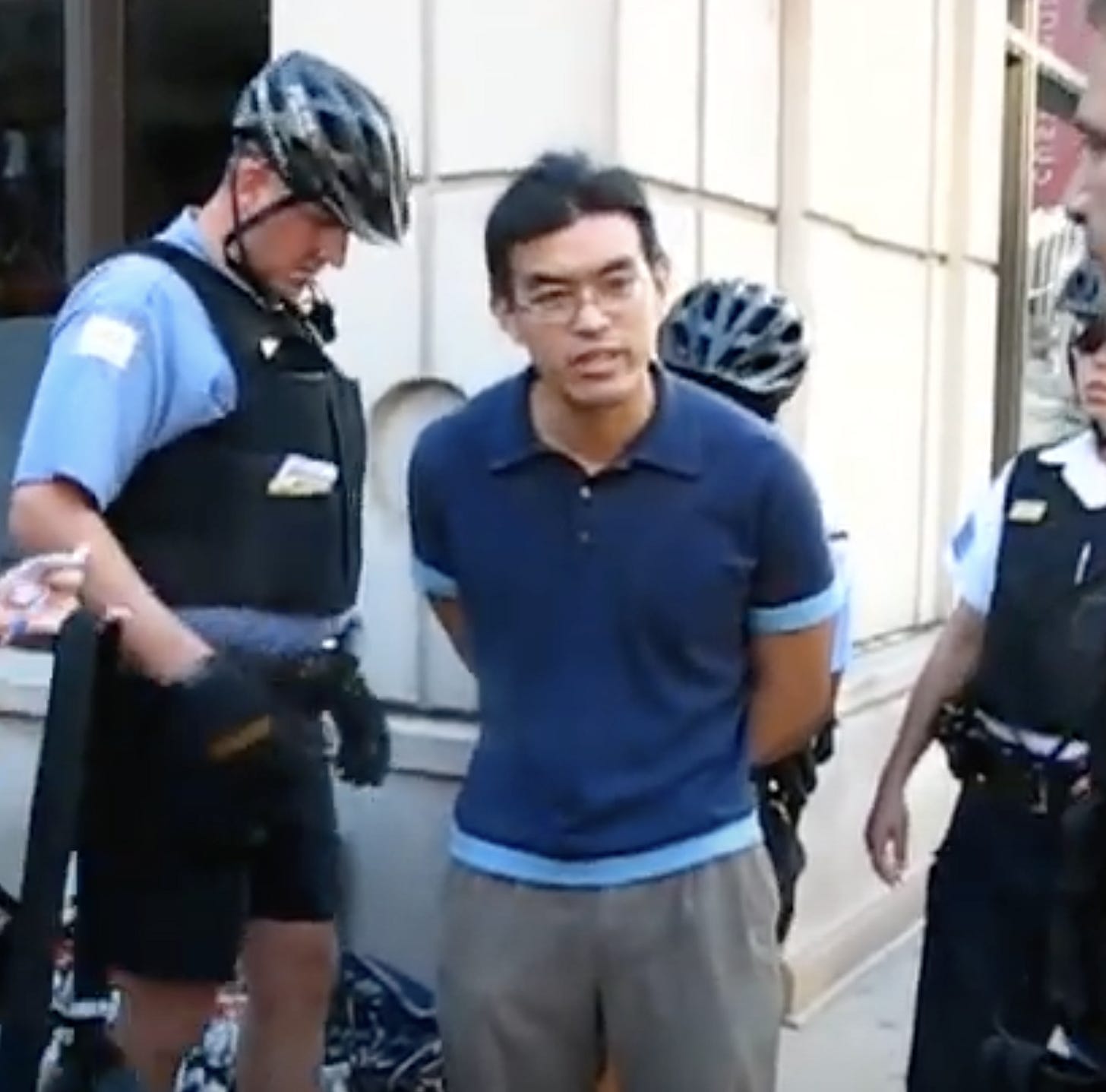First contact with a convicted felon
Musings on incarceration, Part 1

NOTE: I’m writing every day in memory of Lisa, who died on October 13. Not all of these posts will be sent out by email, and some I may write from jail/prison, as I go to trial on November 29. So if you want to follow this journey, visit the blog every day. I’ll try to post by 10 am each day, but occasionally, I’m sure a post will be late.
Nearly 20 years ago, I became friends with my first convicted felon. I did not realize Josh was a felon when I met him. And he was a shockingly normal person – an undergraduate at the University of Chicago, where I had just returned (after a brief stint in economics graduate school) to begin law school. The only thing unusual about him was his quiet intelligence. He was a member of the vegan society, soft spoken and whip smart, but did not even seem to be the most passionate person in the club. That title was surely reserved for the leader of the group, a math student named Eric whose organizing zeal made the vegan society one of the most effective student organizations on campus.
Eric was the one who let me know about Josh’s history, nearly a year after I met him.
“He’s been to prison, you know,” Eric said.
“What?” I didn’t process what he was saying at first. With my conservative, rule-abiding upbringing, I had never met anyone who had been convicted of a crime.
“He was convicted and locked up for animal rights activism,” Eric explained.
When I finally understood, I felt inexplicably nervous, as if I had just been told that a friend of mine had a dangerous contagious disease. My entire life I had been taught that our government was just and democratic; that we were lucky to be in the United States, after my parents fled the poverty and oppression of their home country; and that only bad people went to jail. Now I was associated with someone who defied all of this. A felon and prisoner.
“Why did I not know this?”
“He doesn’t talk about it much, and it wasn’t a good experience.”
“What do we do?”
It was a strange question, and not one that Eric really understood. So the conversation ended as quickly as it began. And I was left to process this new revelation in my life on my own.
While I was ideologically aligned with Eric and Josh, I was not, at the time, close friends with either of them. We did not go to parties together or watch movies. We did not share our hopes and our fears. And that distance was possibly the reason I was able to cope with this strange new fact about my social network. “He may be a convicted felon, but that doesn’t affect me,” I though to myself. “We’re just part of the same club.”
But I felt ashamed of myself for that sentiment. As someone who was marked as a “low status” person growing up in Central Indiana, I didn’t like the idea of disassociating myself from someone because of their standing in society. I had done activism for wrongly convicted deathrow inmates, and was an organizer in the projects of Chicago, where many of the families we worked with had had tangles with the criminal justice system. And, of course, there was another group of people who were low status that I very much believed in: animals. But the abstract belief in justice for all, even those who received little respect from society, was more a theory than an actual practice for me. The reaction to Josh proved that.
My shame, in turn, transformed into a fuel. It drove me to learn more about criminal justice. (At the time, I had been skipping many of my criminal law classes and focused entirely on a non-practical discipline called “behavioral law and economics.”) I read the history of persecution of animal rights activists. I discovered an entire body of literature and evidence in social movements, relating to the power of unearned suffering, or what one Harvard scholar calls “communicative suffering” because of the power of such suffering to amplify a movement’s message. I took on a key role in a legal support team for an animal rights activist, Lauren Gazzola, who would subsequently become one of my dearest friends, and the single most important intellectual influence in the formation of Direct Action Everywhere.
And then, finally, after all of that, after all the fears and discomfort and shame, I was arrested for the first time in my life, about 4 years later on a freezing street corner in Chicago.
That arrest changed everything I thought I knew about criminal justice. But I’ll save it for tomorrow.


Thinking of you Wayne shared from New Zealand you don’t deserve to be treated like a criminal when it is the barbaric savages in the vile filthy industries that exploit our dear innocent suffering Animals 💔💔
Animal Ag is evil and wicked 🤬
I stand in solidarity with you Wayne. 😑
I love your brevity 🌹 your strong composure through all this is a great example for us all thank you 🙏🏽